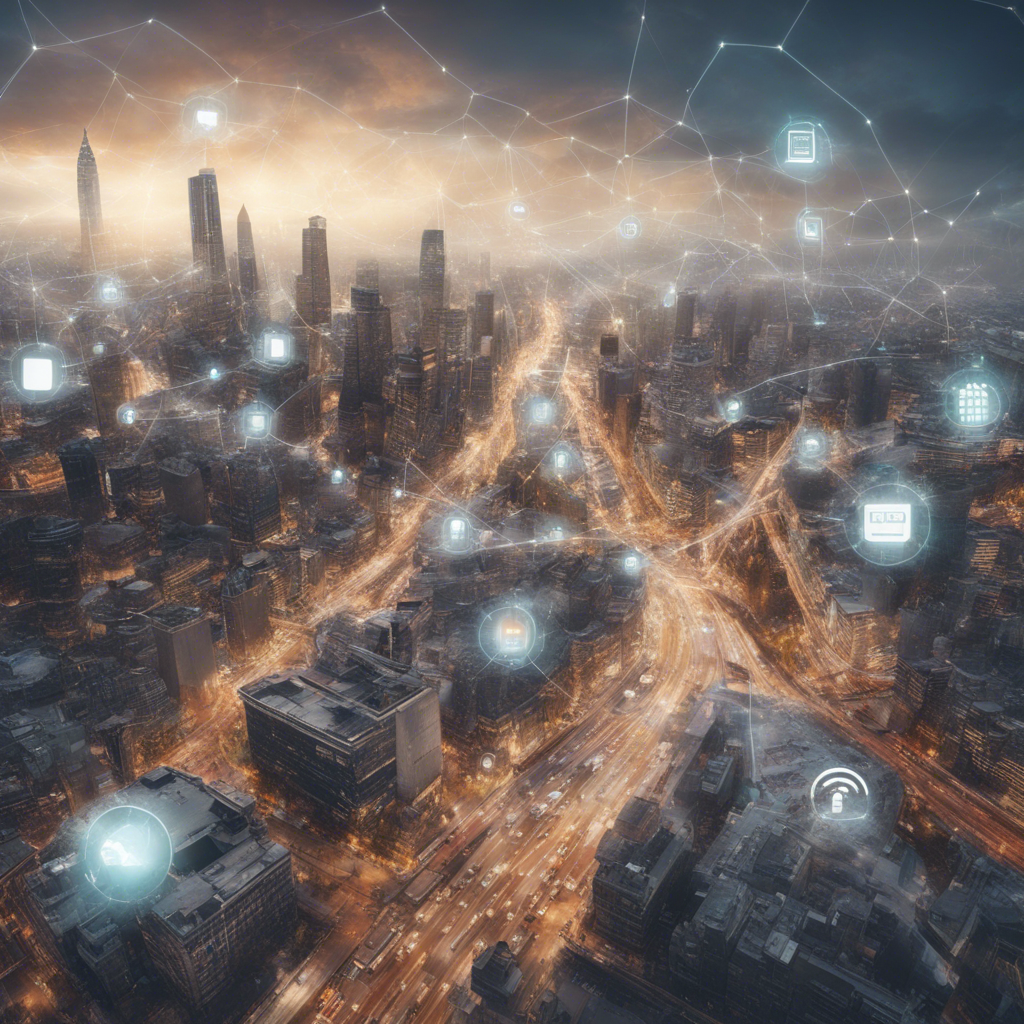
Smart Cities and IoT: Revolutionizing Urban Living
In the digital age, the concept of Smart Cities has transformed from a futuristic vision into a tangible reality. This transformation has been largely driven by the rapid advancement of the Internet of Things (IoT) technology. Smart Cities leverage IoT to enhance the quality of life for residents, improve sustainability, and boost efficiency in various aspects of urban living.
Understanding Smart Cities and IoT
Smart Cities are urban areas that integrate advanced technologies to optimize city operations and improve the overall quality of life for its residents. These technologies are often powered by IoT, which refers to a network of interconnected devices that can collect and exchange data over the internet without human intervention.
Key Components of Smart Cities
-
Sensors and Devices: IoT devices and sensors are strategically deployed throughout the city to collect real-time data on various parameters such as traffic flow, air quality, energy consumption, and waste management.
-
Data Analytics: The data collected by sensors is analyzed using advanced analytics tools to derive valuable insights that can be used to optimize urban services and decision-making processes.
-
Communication Infrastructure: High-speed connectivity infrastructure, including 5G networks, Wi-Fi hotspots, and fiber-optic cables, enables seamless communication between IoT devices and centralized control systems.
-
Smart Governance: Smart Cities rely on data-driven governance models to enhance public service delivery, ensure transparency, and promote citizen engagement.
-
Urban Planning: IoT data plays a crucial role in urban planning by providing city planners with valuable insights into traffic patterns, energy consumption trends, and population dynamics.
Benefits of Smart Cities Enabled by IoT
-
Efficient Resource Management: IoT-enabled systems help cities optimize resource allocation, leading to reduced energy consumption, improved waste management, and enhanced water conservation efforts.
-
Enhanced Mobility: Smart transportation systems powered by IoT can alleviate traffic congestion, enhance public transit services, and promote eco-friendly modes of transportation such as cycling and electric vehicles.
-
Improved Public Safety: IoT devices enable real-time monitoring of public spaces, allowing authorities to respond quickly to emergencies, prevent crime, and ensure the safety of residents.
-
Sustainable Urban Development: By leveraging IoT data, cities can make informed decisions that promote sustainable development, reduce environmental impact, and foster resilience to climate change.
Case Studies and Success Stories
Barcelona, Spain
Barcelona has emerged as a leading Smart City, leveraging IoT technologies to enhance urban mobility, promote sustainability, and improve the overall quality of life for its residents. The city has implemented smart parking solutions, sensor-based waste management systems, and energy-efficient street lighting, among other initiatives.
Singapore
Singapore’s Smart Nation initiative aims to harness the power of IoT to create a more connected, efficient, and sustainable urban environment. The city-state has deployed IoT sensors for smart energy management, real-time traffic monitoring, and smart water distribution systems, positioning itself as a global leader in smart city innovation.
Future Trends and Challenges
As Smart Cities continue to evolve, several trends are likely to shape the future of urban living:
-
AI Integration: The integration of artificial intelligence (AI) with IoT technologies will enhance predictive analytics, optimize resource allocation, and enable more personalized urban services.
-
Cybersecurity Concerns: The proliferation of IoT devices raises concerns about data security and privacy, highlighting the need for robust cybersecurity measures to protect sensitive information.
-
Interoperability: Ensuring seamless interoperability between diverse IoT devices and platforms is crucial for maximizing the efficiency and effectiveness of Smart City solutions.
In conclusion, Smart Cities powered by IoT represent a paradigm shift in urban planning and development, offering immense potential to create sustainable, efficient, and livable urban environments. By harnessing the power of data and connectivity, cities can address pressing challenges, improve quality of life, and pave the way for a smarter, more connected future.
Image Source: Pixabay References: Smart Cities Council, World Economic Forum



